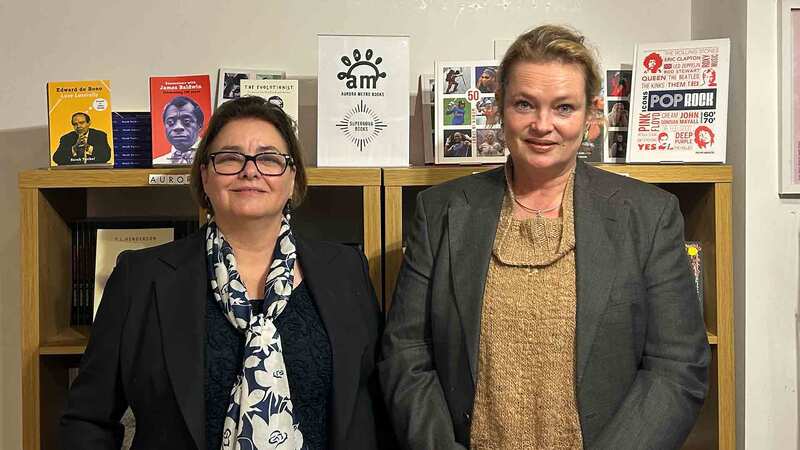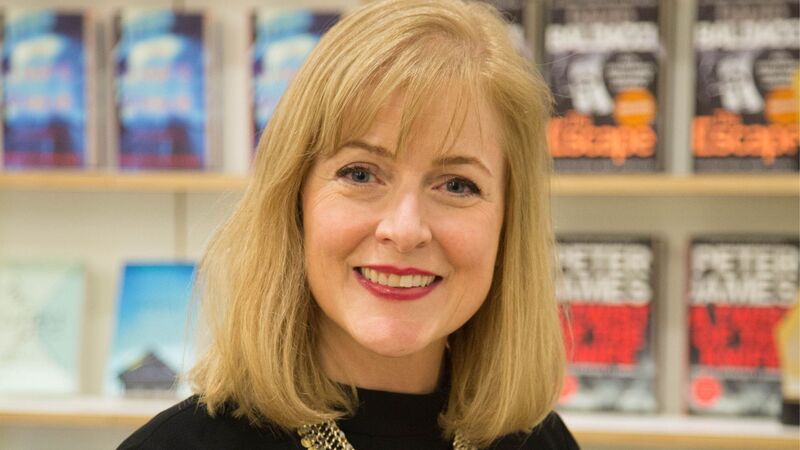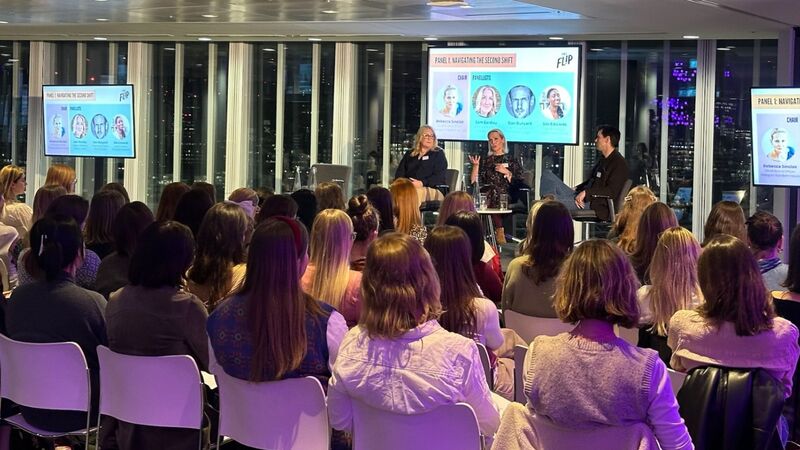Being seen: how Dark Matter joins the dots between books and Black readers
Dark Matter marketing agency founder Micallar Walker on how she found a niche in publishing
Dark Matter is a Black woman-owned, inclusive marketing agency that works collaboratively to connect culture with Black audiences. It was set up by Micallar Walker, a Dubai-based film marketeer, who, having been made redundant during the lockdown summer of 2020, decided to take her career in a more intentional direction.
She wanted, she says, to be “more picky and impactful” – and since then has worked with publishers on campaigns for books such as American Fiction, The Lagos Wife and Every Smile You Fake, and more widely, with Fane, on A Celebration of Black Trans and Queer Voices, with authors Dean Atta, Kuchenga Shenjé and Michael Donkor.
Actually, she confesses, film is her first love, with books not part of her original vision for the agency. “Publishers always recoil when I mention that, but that was my career.” She had worked across events and marketing for cinema group Picturehouse and then Front Row Filmed Entertainment, before moving into consultancy.
She came to books indirectly when a contact talked to her about how publishing was also finding it hard to join the dots between the Black talent it was publishing and the readers for those books. “So I started doing my research, meeting people in publishing, and they were saying the same thing, publishers don’t know how to reach Black audiences, and then when I started meeting publishers it made sense—because they are all white.”
Black audiences are often not seen, so it is about being seen and being necessary
The move was timely, with Walker able to lean into what was happening in publishing after the summer of 2020 when, following the murder of George Floyd, the necessity of bringing on Black writers and their books became an urgent imperative. The irony, of course, is that Walker was precisely someone who publishers should already have been looking to (as a reader). “I hadn’t really paid attention to publishing before. I just wasn’t seeing the books, because the campaigns weren’t reaching me.” Working in film, and being receptive to stories, should really have put her in the right demographic for the kinds of books publishers were seeking to market.
Unsurprisingly, following her research she saw the opportunity. “I could see there was a niche there for me. All these books are coming out and there’s no one at the publishers to help find readers for them, because the teams do not reflect the authors or the experiences of the characters in the books. There is a Black audience that wants to buy books, go to the cinema and theatre, and engage with the arts.” The business was named after “dark matter”, a substance that without it, nothing would exist. “It is something that is needed and necessary, but you can’t see it. Black audiences are often not seen, so it is about being seen and being necessary,” she says.
Careful critique
She is careful about being too critical about publishing, partly because she says there have been some really positive collaborations since her move into the space. “I’m not here to bash publishing,” she says, but highlights a lack of creativity that comes from the sheer number of books being published, and the overwork that results. As a consequence, she adds, there is less wriggle room in the books business, less space for creativity, at least when compared to movies. “Publishing is just more stiff. People in film are more up for trying something different.”
There is also that lack of diversity around the table, with Walker explaining that when she works with other Black marketeers the process is a lot more fluid (and fun). “I have never had to explain ‘the why’ as much,” she admits. “People come to Dark Matter when they want to reach Black audiences but they are still not clear about how they want to do that. Sometimes I do have to say the same thing over again.” This also creates opportunities, she says. “I do feel that the people I am in touch with who are not Black are aware of the lack of representation and are really open to collaborating. And because of that, when we do something it really stands out.”
Walker points to the launch event for poet Yomi ṣode’s Manorism, as a “real standout moment”. “We really paid attention to the detail, and it’s still being talked about as a result.” Dark Matter now works with a range of publishers, from Faber to Vintage, on titles such as No Place Like Home (Dialogue) and The Wickedest (4th Estate). In fact, perhaps because of the number of books being published, the publishing side takes up the larger proportion of her activity.
She says that whatever the project being honest and upfront at the start is crucial. It’s not just a case of finding the time or resource for a particular project, but also about managing expectations. “Publishers need to be clear about how much money they’ve got, and what reach is achievable with those budgets. Whether they want to work in a digital space or physical space. We are often asked: ‘What can you do?’, instead of the publishers doing the research about what we have done.”
Her focus has been on the Black audience, but that does not mean she only wishes to work with Black writers, and their books. “I have never said we only work on Black authors, my focus is Black readers and Black audiences.” Recently, she has pitched for a couple big titles from white authors, but didn’t quite get the deal over the line. “We’re excited to work with all authors from all ethnic backgrounds whose work we connect with, and whose stories resonate with Black readers,” she says.
She has also worked with booksellers such as Round Table Books and Afrori Books, to broaden their audiences and reach, and has an ongoing arrangement with Fane, manifested most recently in a celebration of Black sexuality, “Let’s Talk About Sex!”, with a panel of Sareeta Domingo, Jackson King and Charlene Douglas, with host Alexis Lee.
At The Bookseller Children’s Conference, held two weeks ago, Storymix founder, publisher and writer, Jasmine Richards talked about a “breathtakingly swift rollback” on the focus on Black writing and authors that followed the summer of 2020, and Walker says she has felt something similar. “Three years ago the conversations we were having felt sincere and respectful in their approach, from people who were aware of the climate and the situation, but recently, over the past year, some of the approaches have become less sincere, and can sometimes feel like a tick-box exercise. We can see those ones a mile off,” she says.
Is she disappointed by the lack of change? Black writers often come away from their publishing experience disappointed, she says. “I don’t want to talk myself out of a job, but we shouldn’t have to have agencies like mine. I would love for the work to be purely creative, and not needed in the same way. But until the publishing houses reflect the writers and the audiences there is always going to be a place for Dark Matter. But I wish… Look, it shouldn’t be so desperate.”
The upside is that the audience is now established and visible, with the magic happening, when it is centred. “I didn’t know—before I worked in it—that there was such a big Black book community. They really want to be marketed to. It means that when [people] get involved, we can bring the whole campaign to life, and knock it out of the park.”
Rules of Engagement
Have a clear brief: people come to us when they want to reach Black audiences but they haven’t considered how and where Dark Matter will fit into their campaign.
Be upfront: about how much money there is in the budget, and what the expectations are with that money.
Try something new: there’s lots to learn from other arts industries and lots of audience crossover.
Consider various touchpoints for us throughout the campaign: deep collaboration is hugely important to us—we are not here for, or open to, name-tagging exercises.
Spread the love: work with more than one platform that centres Black readers; different perspectives will mean a more rich and nuanced campaign.
The magic happens when you centre an audience and curate intentionally.















